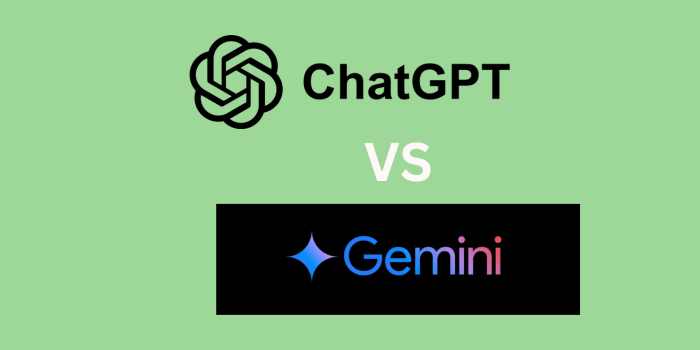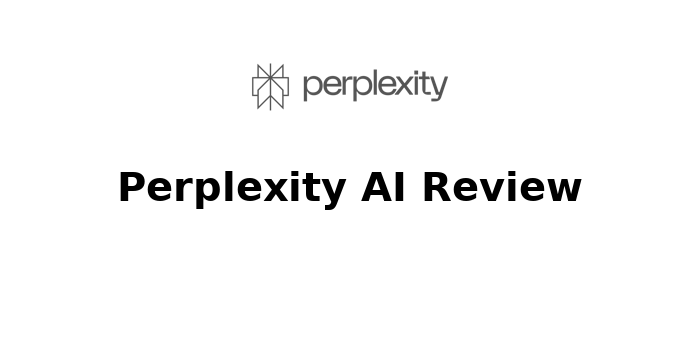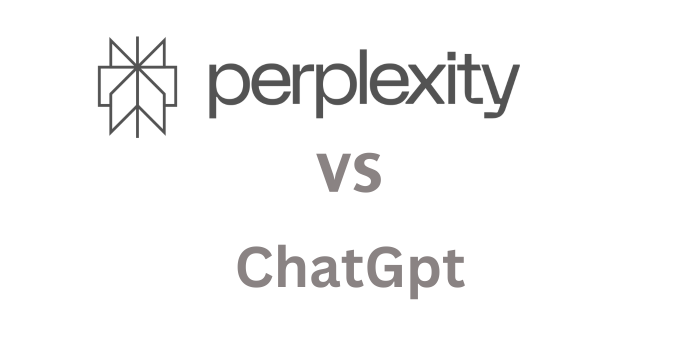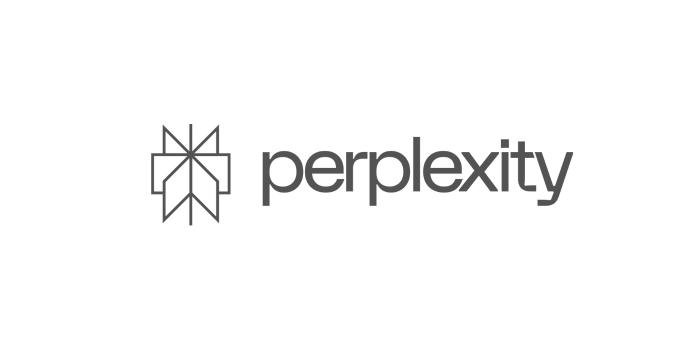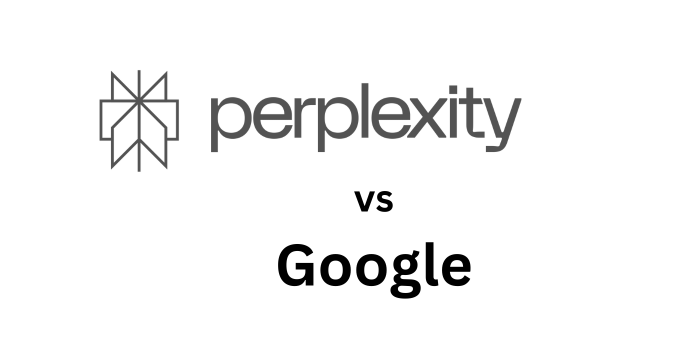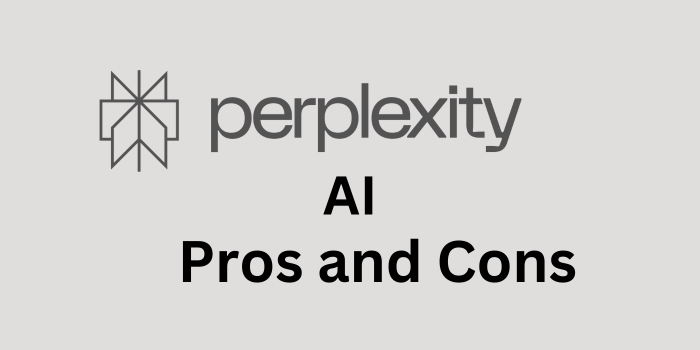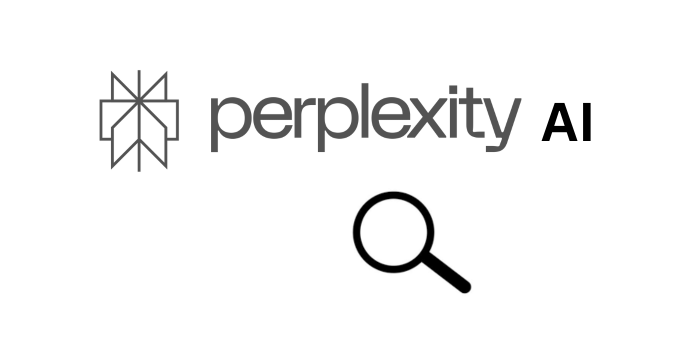Over the last few years, generative AI has transformed from an experimental novelty to a mainstream powerhouse. What started as simple text completion engines evolved into complex multimodal systems capable of generating essays, code, images, music, and even human-like conversations. AI tools like ChatGPT and Gemini are now integral to how people learn, work, create, and communicate in the digital age.
These tools use large language models (LLMs) trained on massive datasets to simulate human reasoning, improve productivity, and automate tasks that once required skilled professionals. Whether it’s writing content, summarizing documents, building software, or holding real-time conversations, generative AI is reshaping nearly every industry.As organizations adopt AI faster than ever, the focus has shifted from whether to use AI to which AI platform delivers the most value. And that’s where the Gemini vs ChatGPT debate becomes especially relevant.
Why Gemini vs ChatGPT Matters
OpenAI’s ChatGPT and Google’s Gemini represent two of the most advanced AI assistants available today. Both offer powerful capabilities, but they’re built on different philosophies, ecosystems, and technical foundations. ChatGPT thrives in creative and conversational tasks, while Gemini stands out for its real-time access to web data and seamless integration with Google services.
Choosing between them is no longer just a tech preference—it impacts workflows, content quality, research depth, and business outcomes. This comparison matters because it helps users—individuals, educators, developers, and enterprises—make an informed decision about which AI fits their unique needs.
This blog post will break down both tools from every angle: technology, features, use cases, pricing, performance, and more—so you can confidently choose the AI assistant that empowers you most in 2025 and beyond.
Background of ChatGPT
Understanding ChatGPT’s origin and evolution helps explain why it’s become one of the most widely used AI tools in the world. From its roots in advanced language research to the release of multimodal models like GPT-4o, ChatGPT’s development reflects the rapid progress in generative AI and its expanding real-world applications.
Origin (OpenAI)
ChatGPT was developed by OpenAI, an artificial intelligence research lab founded in 2015 with the mission to ensure that artificial general intelligence (AGI) benefits all of humanity. OpenAI focused on creating large language models (LLMs) that understand and generate human-like text. The breakthrough came with the GPT (Generative Pre-trained Transformer) series, where the model is trained on vast amounts of data to predict and generate text.
OpenAI’s research rapidly gained attention for producing state-of-the-art natural language understanding and generation capabilities, which culminated in the public release of ChatGPT in late 2022 — a conversational AI built on these models, designed to interact naturally with users.
GPT-3.5, GPT-4, GPT-4o Evolution
The evolution of ChatGPT’s underlying models has been remarkable:
- GPT-3.5: Released in 2022, it powered the early ChatGPT experience, providing impressive conversational abilities but with occasional factual inaccuracies and limited context understanding.
- GPT-4: Released in 2023, GPT-4 significantly improved reasoning, creativity, and language understanding, enabling more complex and coherent conversations.
- GPT-4o: The latest iteration introduced in 2024, GPT-4o is a multimodal model capable of processing text, images, and audio, making ChatGPT not only conversational but also able to understand and generate multimedia content. It also enhanced factual accuracy and supported more nuanced interactions.
Features, Capabilities, and Limitations
ChatGPT has evolved far beyond basic chatbot functionality. With each new model version, it has gained deeper reasoning abilities, expanded creative outputs, and greater responsiveness. However, while it excels in many areas, it still has certain boundaries that users should understand to use it effectively and responsibly.
Features & Capabilities:
- Human-like conversational abilities with context retention over multiple turns.
- Multimodal inputs: processing images, text, and audio.
- Creative content generation — articles, stories, poetry, and code.
- Wide language support and adaptability to various writing styles and tones.
- Plugin ecosystem and API access enabling integrations with third-party apps.
- Customizable prompts and fine-tuning options for enterprise needs.
Limitations:
- Knowledge cutoff date (typically October 2023), meaning it doesn’t natively know about events or data after that time unless browsing is enabled.
- Occasional generation of plausible but incorrect or nonsensical answers (known as “hallucinations”).
- Does not have inherent real-time internet access unless specific browsing plugins/tools are enabled.
- Sometimes struggles with very long or complex conversations requiring deep multi-step reasoning.
Despite these limitations, ChatGPT remains one of the most advanced and versatile AI conversational agents available, widely used across industries for everything from coding help to content creation and customer support.
Background of Google Gemini
Google Gemini represents a major milestone in the evolution of artificial intelligence. It reflects years of innovation, trial, and adaptation by one of the most powerful tech companies in the world.
From its early experiments with conversational AI to its deep integration with productivity tools, Gemini has become more than just a chatbot—it’s a complete AI assistant designed to amplify human potential.
To understand its impact, we must explore its origins, how it evolved through Gemini 1.5, and why it stands out in the growing AI landscape of 2025.
Origin: From Bard to Gemini
Google first entered the generative AI space with Bard, an experimental chatbot launched in early 2023. Bard was initially powered by LaMDA (Language Model for Dialogue Applications) and aimed to compete with OpenAI’s ChatGPT. While Bard showed potential, it lacked some of the finesse and versatility users were seeing in GPT models.
In late 2023, Google introduced its Gemini family of AI models, marking a major upgrade in architecture, scalability, and application. Bard was soon rebranded as Gemini, and the AI assistant began rolling out new capabilities that exceeded those of its predecessor. With this move, Google positioned Gemini not just as a chatbot, but as a fully integrated AI productivity partner.
Gemini 1.5 and Integration with Google Workspace
In 2024, Google released Gemini 1.5 Pro, a more powerful, context-aware AI model capable of handling massive inputs (up to 1 million tokens). What truly made Gemini stand out was its native integration with Google Workspace tools like Gmail, Docs, Sheets, and Drive. This allowed users to ask Gemini to summarize long email threads, draft documents, generate presentations, and even analyze spreadsheet data—all within the Google ecosystem.
For professionals and businesses already embedded in Google Workspace, Gemini became more than a chatbot—it evolved into a smart collaborator embedded across productivity apps. With Gemini, tasks that once took hours—such as planning, drafting, and data analysis—could now be completed in minutes.
Core Features and Strengths
- Real-Time Web Access: Unlike most LLMs trained on fixed datasets, Gemini can access and retrieve real-time information from the internet (for eligible users).
- Workspace Integration: Deep integration with Google Docs, Sheets, Gmail, and Meet for streamlined productivity.
- Large Context Window: Gemini 1.5 can process and remember up to 1 million tokens, enabling deep document analysis.
- Multilingual Capabilities: Designed to work fluently across many languages, enhancing global accessibility.
- Mobile and Cross-Platform: Available via web, Android, and iOS apps, making it accessible on the go.
- AI-Powered Summarization: Can summarize PDFs, research papers, and emails with impressive accuracy.
Thanks to these innovations, Gemini has become a serious contender in the AI assistant race, especially for users already using Google’s suite of tools.
Core Differences Between Gemini and ChatGPT
While both Gemini and ChatGPT are advanced AI systems, they are built with different design goals and capabilities. Understanding their core differences helps you decide which one aligns best with your needs—whether it’s content creation, research, productivity, or real-time data access.
Language Model Technology
At the heart of these AI assistants are their respective language models. ChatGPT is powered by OpenAI’s GPT-4o (as of 2025), a refined transformer-based architecture that delivers exceptional fluency, reasoning, and speed across tasks. GPT-4o is known for its ability to handle natural conversation, code, and complex instructions with impressive coherence and creativity.
Gemini, on the other hand, is built on Google DeepMind’s Gemini 1.5 model. Unlike traditional models, Gemini is optimized for long-context understanding (over 1 million tokens), memory recall, and integration with web and app services. While both models are transformer-based, Gemini has a stronger focus on retrieval-augmented generation (RAG) and real-time updates.
Access to the Internet (Real-Time vs Static Training)
This is one of the biggest differentiators. ChatGPT is trained on a static dataset up to October 2023 but offers browsing capabilities to retrieve live data—available only in the Pro version with GPT-4o. This allows users to verify facts, check current events, and explore fresh content.
Gemini has native, real-time access to the internet built-in. It can summarize webpages, pull live data, and reference the latest updates directly during the conversation. This makes Gemini more dynamic for current affairs, product comparisons, and trending topics.
Multimodal Capabilities (Text, Image, Video, Audio)
Both models are multimodal, but their implementations vary. ChatGPT-4o supports text, image recognition, voice input/output, and basic file uploads. Users can chat with it via voice, analyze images, and interact with documents, making it highly versatile for creators and developers.
Gemini also supports multimodal inputs like image and voice, especially on mobile and in Google apps. However, its capabilities with audio, video, and live media are still catching up compared to GPT-4o. Gemini excels in visual document understanding and integrating with tools like YouTube, Google Photos, and Lens.
Which is Better for Content Creation?
Both Gemini and ChatGPT have rapidly become top-tier tools for content creators, but their strengths differ depending on the task. Whether you’re a blogger, marketer, or business communicator, choosing the right AI can impact your workflow, creativity, and productivity.
Blogging
ChatGPT, especially the GPT-4o model, excels at long-form blog writing. It understands tone, structure, keyword usage, and can generate SEO-friendly articles with headings, subheadings, and natural transitions. It’s also capable of mimicking different writing styles, making it ideal for niche content creation.
Gemini can also create blog posts, but it shines more in factual summaries and research-heavy content. Its real-time web access helps ensure information is current. However, its narrative fluency is still catching up to the conversational flow that ChatGPT delivers.
Verdict: For creative, structured, and audience-focused blog posts, ChatGPT offers a more polished and writer-friendly experience.
Emails
Gemini’s edge in email creation lies in its native integration with Gmail. It can auto-draft, rewrite, and summarize emails within your inbox, making it a seamless choice for productivity and business communication.
ChatGPT can write excellent emails too, especially when given a prompt with details and tone guidance. However, it requires copy-pasting between apps unless integrated through plugins or third-party tools.
Verdict: For business or daily emails, Gemini has the upper hand. For cold outreach, personalized messaging, or creative email copy, ChatGPT wins.
Copywriting
ChatGPT is a powerful copywriting tool that can generate ad copy, landing page headlines, CTAs, product descriptions, and brand messaging with remarkable speed and precision. It also adapts well to different tones—formal, playful, urgent, and more.
Gemini is also capable of writing copy but leans more toward informational clarity than emotional or persuasive nuance. It’s great for summarizing features or product specs but may lack the punch marketers seek.
Verdict: ChatGPT is better suited for creative and persuasive copywriting, especially when targeting conversions or engagement.
Which is Better for Coding Help? Gemini vs ChatGPT
When it comes to software development assistance, both ChatGPT and Google Gemini offer powerful features—but their strengths vary depending on your workflow, programming skill level, and the complexity of the task. Let’s compare how they handle code generation, debugging, and IDE integrations in real-world development scenarios.
Code Generation: ChatGPT Leads with Precision
ChatGPT excels in generating clean, efficient code across multiple languages. It supports Python, JavaScript, Java, C++, and more, making it ideal for both beginners and professionals. It can write functions, documentation, and even test cases.
Gemini can generate code too, but often lacks the refinement and depth seen in ChatGPT’s outputs.
Verdict: ChatGPT wins in advanced code generation.
Debugging: ChatGPT’s Reasoning Is More Mature
ChatGPT can analyze error messages, explain stack traces, and propose actionable fixes with strong contextual understanding. Gemini offers some debugging support but tends to be more generic.
Verdict: ChatGPT is more reliable for debugging tasks.
IDE Integrations: Gemini’s Strength is Google; ChatGPT Wins on Developer Tools
ChatGPT integrates with VS Code, Jupyter, and other IDEs via plugins. GitHub Copilot (based on similar models) enhances this experience further.
Gemini is being integrated with Google tools like Colab and Android Studio, great for cloud and mobile dev but still in early stages.
Verdict: ChatGPT has wider, more robust IDE support for developers.
Final Take: ChatGPT Is the Clear Winner for Developers (as of 2025)
| Feature | ChatGPT 🏆 | Google Gemini |
|---|---|---|
| Code Generation | ✅ Highly advanced | ⚠️ Good, but limited |
| Debugging | ✅ In-depth reasoning | ⚠️ More generic help |
| IDE Integration | ✅ Broad support | ⚠️ Strong in Google apps |
While Gemini is catching up, ChatGPT remains the go-to AI tool for coding, debugging, and developer productivity in 2025.
Real-Time Information and Search
Gemini’s Internet Access
One of the standout features of Google Gemini is its ability to access the internet in real time. This means it can deliver up-to-date responses on current events, live data, and evolving topics without being restricted to its training cut-off. Gemini leverages Google’s powerful search infrastructure, which enables it to scan the web and cite sources much like a human using Google Search—only faster and more context-aware.
This feature is especially valuable for tasks like news summaries, stock updates, ongoing legal or political developments, or fact-checking rapidly changing information. Users can receive answers enriched with citations, web links, and even summaries from top-ranking websites, making Gemini a reliable tool for research and real-time decision-making.
ChatGPT’s Browsing Tool
ChatGPT, in its Pro version, includes a “Browse with Bing” feature that allows it to access live data as well—but with some limitations. Unlike Gemini’s always-on search ability, ChatGPT’s browsing must be toggled on and may be slower depending on server load and search volume. However, it is quite powerful when enabled, especially with GPT-4o, offering users a way to go beyond its October 2023 training cut-off.
ChatGPT’s browsing tool can navigate websites, extract summaries, and return the most relevant links in its answers. This makes it suitable for content updates, real-time fact-checking, and research on trending topics. While not as tightly integrated into the core model as Gemini’s search capabilities, it still offers immense value—especially for users familiar with prompting techniques that guide browsing behavior effectively.
Reliability of Current Events Responses
When it comes to real-time response accuracy, both Gemini and ChatGPT perform well—but in different ways. Gemini excels at pinpointing current information quickly and presenting it with linked citations. It feels like a conversational version of Google Search, complete with snippets and sourced highlights.
ChatGPT’s responses are often more thorough in their reasoning and context but may occasionally miss the latest developments if the browsing tool isn’t enabled or if the topic is too new. When browsing is active, however, ChatGPT can generate in-depth insights that are competitive with and sometimes even more articulate than Gemini’s outputs.
Ultimately, for users who frequently need live data—journalists, researchers, financial analysts—Gemini might have the edge due to its native integration with Google’s search engine. But for more nuanced discussions about current events or exploring implications beyond just facts, ChatGPT remains a strong contender.
Integration and Ecosystem
Beyond features and performance, the way an AI assistant integrates into your digital environment can greatly affect its usefulness. In this section, we’ll explore how ChatGPT and Gemini fit into broader ecosystems—from custom tools to office workflows.
ChatGPT Plugins and Custom GPTs
One of ChatGPT’s strongest features in 2025 is its ability to integrate with third-party tools through plugins and custom GPTs. Users on the ChatGPT Plus and Pro plans can access a growing library of plugins that connect ChatGPT to services like Wolfram Alpha, Zapier, Expedia, OpenTable, Instacart, and more. These integrations extend ChatGPT beyond language generation into real-world productivity tasks such as booking flights, solving math problems, summarizing PDFs, or even automating workflows.
Additionally, OpenAI introduced the concept of “Custom GPTs,” allowing users to build their own versions of ChatGPT with custom instructions, files, behaviors, and capabilities. This transforms ChatGPT into a modular tool, enabling users to design AI agents tailored for legal research, coding, language learning, education, or customer service.
Gemini and Google Workspace Integration
Google has taken a different approach to integration. Gemini is deeply embedded across the Google ecosystem—including Gmail, Docs, Sheets, Meet, and Drive. This means users can invoke Gemini while writing an email, creating a spreadsheet, summarizing a document, or searching files in Drive—all without leaving the interface. The seamless embedding of AI into everyday productivity tools makes Gemini ideal for students, office workers, and remote teams using Google Workspace.
Gemini’s context awareness is especially powerful in Google Docs and Gmail. For instance, it can read an email thread and generate a polite reply draft, or it can turn a meeting transcript into a structured action plan inside Docs. This level of automation significantly boosts workflow efficiency and collaboration.
Which Ecosystem Works Better?
If you rely heavily on Google’s productivity suite, Gemini offers a more integrated, natural experience. Its AI is just a click away inside the apps you already use. On the other hand, if you need broader third-party integrations, custom AI agents, and extensibility, ChatGPT—with its plugins and custom GPTs—is the better choice.
Both ecosystems are constantly evolving, but the key difference lies in focus: Gemini aims to enhance existing Google services, while ChatGPT is building a flexible, open platform for custom AI development.
Accuracy and Hallucination Rate
When choosing an AI assistant, accuracy is everything. From research to customer service, users rely on these tools to provide facts—not fiction. But which model, Gemini or ChatGPT, offers more reliable answers in practice?
Which One Tells the Truth More Often?
One of the biggest concerns with AI language models is their tendency to “hallucinate” — confidently generating false or misleading information. While both Gemini and ChatGPT have improved their accuracy dramatically over time, they still occasionally make errors, especially in niche or fast-evolving topics.
ChatGPT, particularly in its GPT-4o version, is generally regarded as slightly more reliable in structured, knowledge-based queries. OpenAI has fine-tuned it to reduce hallucination frequency using reinforcement learning from human feedback (RLHF). ChatGPT also offers citations in browsing mode, which allows users to verify claims through web sources.
Gemini, on the other hand, benefits from real-time access to the web by default. This means it can reference current sources while responding — an advantage for up-to-the-minute facts. However, this also introduces potential errors if the referenced websites themselves are unreliable or contradictory.
In real-world usage: ChatGPT is often better for deep, creative, or technical tasks that require structured reasoning. Gemini is stronger for fresh, real-time information retrieval, like trending news or current statistics. Neither is 100% truthful at all times, and users should always cross-check critical information, especially in academic or medical domains.
Privacy, Data Policies, and Security
Privacy and data security are critical concerns when using AI tools. Both ChatGPT and Gemini implement robust measures to protect user information, but their approaches reflect different priorities and architectures. Understanding these differences helps users make informed choices about data handling and compliance.
How ChatGPT Handles Your Data
OpenAI has made significant strides in improving transparency and user control. When using ChatGPT, especially under free or Plus plans, OpenAI may use conversation data to train and improve its models. However, users can disable this in settings by turning off chat history. For enterprise customers, OpenAI offers strict data privacy assurances — data is not used for training, and conversations remain confidential.
ChatGPT encrypts data in transit and at rest. With its browser tools, plug-in usage, and API access, data routing is secured through industry-standard protocols. Enterprise deployments often meet SOC 2 and GDPR compliance standards, ensuring that business-grade security is in place.
Gemini’s Data Privacy Philosophy
As a product of Google, Gemini inherits Google’s long-standing infrastructure and policies around user data. Gemini integrates directly with Google Workspace (Docs, Gmail, etc.), meaning it operates within the same secure cloud framework used by millions of businesses. Google’s privacy policies emphasize user control, consent, and transparency. Gemini data may be used to improve services, but Google typically aggregates or anonymizes inputs when used for model refinement.
For enterprise users, Gemini offers enhanced controls, including the ability to restrict data sharing, audit access, and enforce data residency requirements. Admins can also manage user permissions to ensure secure use in regulated industries like healthcare or finance.
Security Comparison
- Encryption: Both ChatGPT and Gemini use advanced encryption (TLS, AES) for data transmission and storage.
- Data Control: ChatGPT allows disabling history; Gemini relies on Workspace-level permissions and policies.
- Compliance: Both platforms support compliance with GDPR, HIPAA (in some cases), and other regional standards.
- Enterprise Readiness: Gemini may have a slight edge due to Google’s mature admin control system and infrastructure scale.
In summary, both ChatGPT and Gemini take privacy seriously, but their approaches reflect their parent organizations. OpenAI focuses on user-centric controls and transparency, while Google leans on its massive infrastructure and enterprise-grade tools. Choosing between them depends on whether you prioritize flexibility and customization (ChatGPT) or integration and centralized control (Gemini).
Free vs Paid Versions
Both ChatGPT and Gemini offer free tiers to introduce users to their powerful AI capabilities, but their paid plans unlock advanced features and higher usage limits. Understanding what each tier offers helps users choose the best fit for their needs and budget.
Features in Free vs Pro Plans
ChatGPT:
- Free Plan: Access to GPT-3.5, basic conversational AI features, limited usage per day, and standard response speed.
- ChatGPT Plus (Pro) Plan: For $20/month, users get access to GPT-4 and GPT-4o models, faster response times, priority access during peak hours, and multimodal input support. The Plus plan also allows longer conversation memory and plugin usage.
Gemini:
- Free Tier: Basic access to Gemini’s conversational AI, real-time web search capabilities, and standard integration with Google Workspace apps.
- Paid Plans: Pricing varies based on Google Workspace subscription levels. Paid tiers unlock advanced Gemini features such as deeper Workspace integration, enhanced security controls, priority support, and extended usage limits. Enterprise customers may negotiate custom pricing.
Cost Comparison
ChatGPT Plus is straightforward with a fixed monthly fee of $20, making it accessible for individuals and small businesses wanting premium features without a complicated pricing structure.
Gemini’s cost depends on the Google Workspace subscription level, which ranges from Business Starter (~$6/user/month) to Enterprise plans with variable pricing. This makes Gemini more scalable for organizations already invested in Google’s ecosystem but potentially less cost-effective for casual or individual users.
In summary, if you are an individual user or small team, ChatGPT Plus provides a clear value proposition with access to the latest AI models. For larger organizations embedded in Google’s productivity suite, Gemini’s paid plans offer seamless integration and enterprise-grade controls, though at variable cost.
User Experience & Interface
How users interact with AI assistants plays a major role in adoption and satisfaction. Both ChatGPT and Gemini offer sleek, user-friendly mobile apps designed for seamless communication, but there are notable differences in design philosophy and performance that shape the overall experience.
ChatGPT Mobile App vs Gemini App
The ChatGPT mobile app, available on iOS and Android, offers a clean and intuitive interface focused on conversational simplicity. It provides easy access to chat history, custom instructions, and plugin integrations. The app supports voice input and image recognition, making it versatile for various use cases. The UI prioritizes minimalism, helping users quickly get answers without distractions.
Gemini’s app, deeply integrated with Google services, emphasizes productivity and real-time information access. Its interface reflects Google’s Material Design principles with smooth animations and contextual suggestions. Gemini shines with tight integration to Google Workspace, allowing users to seamlessly pull data from Gmail, Docs, and Calendar during chats. This productivity-centric design appeals to users heavily invested in Google’s ecosystem.
Performance and Speed
Both apps deliver fast response times, but differences exist based on backend infrastructure and real-time data access. ChatGPT relies on OpenAI’s optimized cloud infrastructure, offering consistently quick replies even with complex queries. Its caching mechanisms and scalable servers ensure smooth interactions during peak usage.
Gemini benefits from Google’s massive global network, often delivering even lower latency and quicker access to up-to-date web data. Its real-time search capabilities allow Gemini to pull in fresh information instantly, which sometimes makes it feel more responsive and contextually aware than ChatGPT.
However, the actual performance can vary based on the user’s device, network conditions, and specific query types. Both apps continuously receive updates improving speed, stability, and new feature rollouts, keeping pace with user expectations.
Enterprise and Business Use
AI is transforming how businesses operate, innovate, and serve customers. Both ChatGPT and Gemini offer powerful solutions tailored for enterprise needs, enabling companies to harness AI securely, efficiently, and at scale.
ChatGPT Teams and Enterprise
OpenAI offers ChatGPT Teams and Enterprise plans designed specifically for businesses. These plans provide enhanced security, compliance, and collaboration features, including:
- Data Privacy: Enterprise data is not used to train OpenAI models, ensuring confidentiality.
- Admin Controls: Centralized user management, usage monitoring, and policy enforcement.
- Customizable AI: Fine-tuning options and specialized API integrations for unique workflows.
- Collaboration: Shared chat histories, team folders, and role-based access help streamline teamwork.
- Support and SLAs: Priority support, uptime guarantees, and dedicated account management.
These features make ChatGPT Enterprise an attractive option for organizations seeking to embed AI into customer support, content creation, coding assistance, and more while maintaining tight control over data and compliance.
Google Workspace with Gemini
Google has deeply integrated Gemini AI across Google Workspace apps like Gmail, Docs, Sheets, and Slides. This integration empowers business users with AI-driven capabilities such as:
- Smart Compose and Summarization: Quickly draft emails, documents, and reports with AI assistance.
- Real-Time Collaboration: AI suggestions improve team workflows during live editing and meetings.
- Search and Data Insights: Gemini can pull up relevant information from your organization’s data and the web instantly.
- Security and Compliance: Built on Google Cloud’s secure infrastructure with compliance certifications like ISO 27001 and HIPAA.
By embedding Gemini into existing workflows, Google Workspace offers enterprises a seamless AI experience that boosts productivity without requiring users to switch platforms or tools.
Multilingual Support and Global Reach
In today’s interconnected world, effective AI tools must support multiple languages and operate globally to serve diverse users. Both ChatGPT and Gemini strive to break language barriers and provide seamless assistance regardless of location or language preferences.
ChatGPT’s Multilingual Capabilities
ChatGPT supports dozens of languages with varying degrees of fluency. Thanks to its vast training data, it can understand and generate text in popular languages like English, Spanish, French, Chinese, Arabic, and many more. Users have leveraged ChatGPT for translation, language learning, content localization, and cross-cultural communication.
While ChatGPT excels in widely spoken languages, it occasionally struggles with lesser-known dialects or languages with limited training data. However, ongoing model updates continue to improve its language diversity and accuracy.
Gemini’s Approach to Global Reach
Gemini benefits from Google’s extensive language resources and infrastructure. Integrated with Google’s Translate and Search technologies, Gemini offers robust multilingual support across 100+ languages. Its real-time web access further enhances accuracy by pulling from live data sources in users’ native languages.
Moreover, Gemini’s tight integration with Google Workspace enables global businesses to collaborate and communicate seamlessly across borders, enhancing productivity in multinational environments.
Comparing Global Accessibility
- Language Coverage: Gemini currently supports a wider range of languages and dialects, thanks to Google’s vast translation ecosystem.
- Contextual Understanding: Both AI models perform well in context but Gemini’s access to real-time data can improve nuanced understanding in local contexts.
- Regional Adaptations: Gemini leverages Google’s localized knowledge (news, events, culture), giving it an edge in region-specific queries.
- User Base: ChatGPT enjoys widespread popularity globally, especially in English-speaking regions, while Gemini’s usage is rapidly expanding worldwide through Google’s ecosystem.
Ultimately, both platforms are advancing toward truly global AI experiences. Your choice may depend on your primary languages and whether you need deep integration with Google’s services for international collaboration.
Examples and Use Cases
Both ChatGPT and Gemini excel in a variety of applications, helping users across industries boost productivity, creativity, and decision-making. Below are practical use cases demonstrating how each AI assistant can be leveraged effectively in 2025.
10 Practical Use Cases for ChatGPT
- Content Creation: Writing articles, blog posts, marketing copy, and social media updates quickly and creatively.
- Customer Support: Providing instant, conversational responses to customer queries across platforms.
- Programming Assistance: Generating, debugging, and explaining code snippets in multiple programming languages.
- Language Translation and Learning: Translating text and helping users learn new languages with interactive exercises.
- Creative Writing: Crafting stories, poems, scripts, or brainstorming ideas for books and games.
- Summarization: Condensing lengthy reports, research papers, or news articles into concise summaries.
- Personalized Tutoring: Offering tailored explanations and practice questions in subjects like math, science, and history.
- Email Drafting: Composing professional emails or responses based on brief instructions.
- Idea Generation: Brainstorming business names, product ideas, or marketing campaigns.
- Interactive Conversations: Engaging users in role-playing scenarios, interviews, or coaching sessions.
10 Practical Use Cases for Gemini
- Real-Time Research: Accessing and summarizing the latest news and academic articles directly from the web.
- Google Workspace Integration: Assisting with drafting and editing documents, emails, and presentations within Google Docs and Gmail.
- Data Analysis: Helping analyze and visualize data in Google Sheets with natural language queries.
- Scheduling and Calendar Management: Coordinating meetings and reminders via Google Calendar.
- Customer Relationship Management: Integrating with CRM tools to generate follow-ups and client communications.
- Multimodal Interaction: Processing images and text together to answer queries or generate reports.
- Travel Planning: Real-time updates on flights, weather, and local recommendations based on live data.
- Enterprise Workflow Automation: Streamlining repetitive tasks through integrations with Google Cloud and third-party apps.
- Language Translation: Leveraging Google Translate’s extensive database for accurate and context-aware translations.
- Compliance and Security Monitoring: Using AI to scan documents and communications for compliance risks within regulated industries.
Both ChatGPT and Gemini bring unique strengths to the table, making them versatile tools tailored to different workflows and environments. Selecting the right AI depends on the specific use cases and integration needs of the user or organization.
Which One Should You Use?
Choosing between Gemini and ChatGPT depends largely on your specific needs, whether you’re using AI for personal tasks, professional workflows, or creative projects. Both platforms excel in different areas, so understanding their strengths will help you make the best choice.
Personal Use
For everyday personal use, such as answering questions, drafting emails, or brainstorming ideas, ChatGPT offers a user-friendly conversational experience with a wide knowledge base. Its ability to understand nuanced prompts and generate creative responses makes it ideal for casual users and learners. Meanwhile, Gemini’s integration with Google’s ecosystem can enhance productivity if you are deeply embedded in Google Workspace tools like Gmail, Calendar, or Docs.
Professional Workflows
In professional settings, Gemini shines by offering seamless integration with Google’s suite of applications, allowing for smoother collaboration, real-time data access, and context-aware assistance. This is particularly valuable for teams that rely on Google Workspace. ChatGPT, on the other hand, provides powerful API access and customization options that make it suitable for companies looking to embed AI into their own software or workflows, especially when advanced natural language understanding is required.
Creative Industries
For creative professionals — writers, marketers, designers, and developers — ChatGPT’s generative capabilities, including storytelling, coding, and idea generation, make it a go-to tool. Its flexibility in adapting tone, style, and format gives creatives a powerful assistant. Gemini, while strong in productivity, is continuously evolving in creative features and may appeal to those who want integrated multimedia capabilities combined with real-time search results.
Ultimately, your choice depends on how you prioritize integration, customization, and the type of tasks you want AI to assist with. Many users even choose to use both platforms to leverage their unique strengths.
Expert Opinions and Community Feedback
As generative AI continues to evolve rapidly, experts and the user community play a crucial role in shaping perceptions and guiding improvements. Both ChatGPT and Gemini have garnered significant attention from AI researchers, industry professionals, and everyday users. Their insights provide valuable perspectives on strengths, weaknesses, and real-world impact.
What AI Experts Say About ChatGPT
Many AI researchers praise ChatGPT for its versatility and accessibility. Experts highlight its advanced language understanding and conversational abilities as milestones in natural language processing. ChatGPT’s capacity to generate creative content, assist in coding, and provide personalized tutoring has been widely recognized.
However, some experts caution about its occasional hallucinations—where the AI confidently provides incorrect information. Additionally, privacy advocates stress the importance of transparency in data usage and consent, urging OpenAI to maintain rigorous ethical standards as the technology advances.
Industry Feedback on Gemini
Gemini’s integration with Google’s ecosystem receives high marks for productivity and seamless user experience. Industry leaders appreciate Gemini’s ability to pull real-time information from the web and integrate AI-powered assistance directly within tools like Google Docs and Gmail. This makes it especially valuable in enterprise environments.
Critics, however, point to concerns about data privacy given Google’s data-driven business model, and some users find Gemini less flexible than ChatGPT when it comes to creative or open-ended tasks. There is also ongoing discussion about how much control users truly have over their data within Google’s cloud services.
Community Feedback and User Experiences
The user community spans casual users, developers, educators, and businesses, each with unique needs and expectations. Many users praise ChatGPT for its ease of use and broad applicability—from writing assistance to learning new skills. Its availability across platforms and third-party integrations enhances its appeal.
Gemini users, particularly those invested in Google Workspace, report increased productivity and appreciate the tight integration with their daily tools. Real-time web access and the ability to process images and documents within conversations have been game changers for many.
Both communities actively contribute to forums, social media, and feedback channels, pushing for improvements in accuracy, fairness, and ethical AI use. This ongoing dialogue helps shape the future of both platforms.
In conclusion, expert opinions and community feedback highlight that neither ChatGPT nor Gemini is perfect, but both offer unique advantages. The choice depends heavily on individual or organizational priorities—whether you value creative flexibility or enterprise integration more.
Conclusion
Choosing between Gemini and ChatGPT depends on your specific needs, preferences, and environment. Both AI platforms offer impressive capabilities, but they also come with unique strengths and trade-offs.
Summary of Pros and Cons
- ChatGPT Pros: Highly versatile with creative and conversational excellence; strong multimodal support with GPT-4o; user-friendly customization; wide API and plugin ecosystem.
- ChatGPT Cons: Limited real-time internet access without plugins; occasional inaccuracies (“hallucinations”); data privacy depends on user settings and subscription tier.
- Gemini Pros: Seamless integration with Google Workspace and real-time web data access; strong enterprise controls and security; optimized for productivity and search-based tasks.
- Gemini Cons: Less flexible customization compared to ChatGPT; reliance on Google ecosystem may limit appeal for non-Google users; still evolving multimodal features.
Final Verdict
For individuals and creators seeking a flexible, powerful AI assistant with broad creative capabilities, ChatGPT remains the top choice. Its conversational style and expanding multimodal features make it ideal for diverse tasks.
On the other hand, if you’re embedded in the Google ecosystem and require AI that integrates tightly with real-time data and enterprise-grade controls, Gemini offers a compelling alternative focused on productivity and seamless workflows.
Ultimately, both AI models represent the cutting edge of generative AI in 2025. Exploring them hands-on will give you the best insight into which fits your unique needs and future ambitions.
